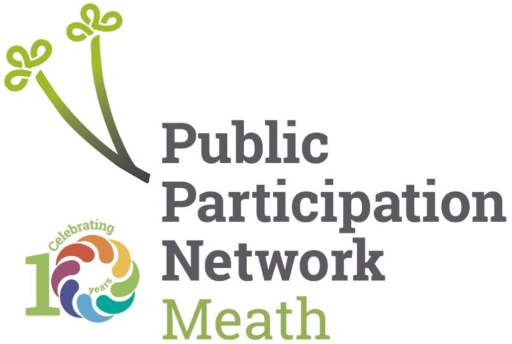The changing face of Stroke support


Providing a healing hand in time of need-the changing face of Stroke support
Channonrock resident Seamus Casey is the Lead Stroke Co-Ordinator with the Irish Heart Foundation for the Dundalk, Drogheda and Navan areas. Though his role remains the same, demand for his service has grown by more than 50 per cent, since Covid began.
Contact details for Seamus and the Navan Stroke Support Group are
- Phone: 086 130 0238
- Email: scasey@irishheart.ie
Here Seamus talks about the way in which the Irish Heart Foundation has adapted to support stroke survivors and their families throughout the pandemic:
My role as Stroke Co-ordinator has changed greatly as a result of the COVID-19 pandemic. Pre -COVID-19 our stroke support groups met in person, and I spent a lot of time on the road travelling to my groups in Louth and Meath. I was in charge of organising the groups, facilitating exercise sessions, as well as social therapy, outings, information sessions, peer to peer support and respite for carers.
Since Covid, the role has totally changed – there are no face-to-face groups. Instead of meeting people once a week in person, we now engage once a week or even daily online or on the phone.
We have implemented a ‘traffic light system’ for our members. “Red” for those who are living on their own who are are prioritised and I ring them every week. “Amber’ is for those who may have people living with them and who are able to text or join our WhatsApp group and “Green” for those that join our online platforms. We have also created a newsletter for those not connected online at all.
I have more than 60 members in my stroke support groups at present with 26 in Dundalk, 24 in Drogheda and the remainder in Co. Meath. In April we started to look at online and what we could do through Zoom to help bridge the gap of not meeting face to face to be able to deliver vital supports to support stroke survivors and their families.
While demand has increased considerably, the roll-out of services and supports has been remarkably efficient. On Tuesdays, Wednesdays and Thursdays, members can join a daily private Zoom meeting, which starts at 12 noon and comprises 45 minutes of seat based exercises specific to stroke members, followed by a chat. We also cater for younger stroke survivors on a Monday with our Young Stroke Support Network (YSSN) Zoom meeting which also provides exercise therapy catered for younger stroke survivors. We finish up with a social chat and also provide information sessions
It was great to see that the move from face to face to online and telephone support worked so well. But some can still be hesitant to engage online and they miss the face-to-face meetings. I hope we can encourage more to join in online to help fill the void left by in person group meetings.
I with the help of the other co-ordinators started the Monday club, which is dedicated to more informal chats, music and singing and it quickly evolved to include quizzes, crafts, and information sessions with healthcare professionals, including occupational therapists and dietitians.
These information sessions take place once a month with the rest of the Mondays devoted to fun activities such as bingo, table quizzes, crafts or sing songs. Tuesdays, Wednesday and Thursdays then comprise exercise and a brief social chat
In April last year the HSE approached the Irish Heart Foundation to help support stroke survivors who were discharged early from hospital due to COVID-19. In response to this call, together with our experienced support staff and volunteers, our Stroke Check in Service was established. To date I have spoken with up to 30 stroke survivors via this service and have had upwards of 220 conversations.
There has been an increase in demand for our service by as much as 50 per cent, which is unbelievable. I think it is down to isolation and a lack of awareness about the signs of stroke and heart disease. I have also noticed that there are a lot of younger people, particularly young farmers, coming through the stroke check-in service. People were afraid to ring their GP or call 999 or go to hospital for help due to COVID-19, but it is important to seek help especially if it’s an emergency like a stroke or heart attack. Knowing these signs and acting fast can save your life.
Managing needs in the community:
In Louth/Meath and surrounding areas we have received several new stroke referrals since COVID-19. In normal circumstances, it would have taken me up to five years to reach those numbers. It is really frightening and sad to see these numbers, but at the same time it’s great that we can help. Very often, stroke survivors and their families would have been unaware of our services. So now, there’s a greater awareness of what we do and how we can help them on their rehabilitation journey.
Once you have a stroke, your life changes. It is turned upside down overnight, forever. There needs to be more education around stroke – it is a brain injury that can have a devastating effect on the lives of stroke survivors and their loved ones.
Survivors of stroke often find it difficult to access information and support. The minute a patient gets out of hospital they are lost, and very often they and their family struggle. While they receive excellent care in hospital, the reality is that they can be left feeling very alone and isolated once back home.
One of the biggest things we find is that stroke survivors are affected by fatigue, depression, cognitive and physical issues among other symptoms, often leaving families full of anxiety that their loved one will have another stroke and they have no idea or guidance as to what to do. Therefore our support is vital to help them through this very difficult time. Which is why I think people need to understand the value of acting F.A.S.T. – the sooner you see someone with the signs of a stroke, the better their prospect of recovery. Every minute matters, don’t delay call 112 or 999. In November last year the Irish Heart Foundation launched a F.A.S.T. stroke awareness campaign in collaboration with the Government to help spread the act F.A.S.T. message nationwide.
The acronym F.A.S.T. refers to the tell-tale signs of stroke. ‘F’ stands for face and observation of changes in the person’s facial expressions. ‘A’ stands for arms and any signs that the arms may be weak. The letter ‘S’ stands for speech in that one of the signs of stroke is changes in the person’s speech pattern or their speech may have become indistinct or incomprehensible. The final letter ‘T’ stands for time and the urgency of acting F.A.S.T. and calling 112 or 999 without delay.
In its submission to the National Stroke Strategy last November, the Irish Heart Foundation welcomed acute service improvements as outlined in the Strategy but emphasised that “there are major gaps”.
The omission of recommendations for service development covering vital elements of the recovery pathway such as stroke rehabilitation units, community rehabilitation and other evidence-based life after stroke programmes, sends a loud message that these can be ignored by policy makers.
“With no presence in the national strategy, any prospect of progress in these key areas will be effectively off the table for another five years at least” the Irish Heart Foundation stated in its submission.
To help support heart patients throughout the pandemic we also created a private heart support Facebook page which is now at one thousand members.
We also have our Nurse Support Line, a team of dedicated nurses who are there to answer queries and concerns (call 01 6685001 or email support@irishheart.ie ).
We want to get back to the face-to-face contact – that’s important. But with Covid, the use of technology means we can reach out to others that we might not have been able to do previously. That said, Zoom is not for everyone, but people do benefit from the peer-to-peer support.
Establishing links and support from other community-based agencies is important in our work Very often, the needs of stroke and heart attack survivors are extensive and beyond the focus of the group and therefore linking in with community supports is so important.
We are really seeing the importance of support for stroke survivors and their carers. Cocooning has had a huge impact on respite for carers, who don’t have the option of an hour of two to attend our support group. They are stuck at home all the time because of COVID-19. It can be a very isolating and exhausting for them
We put a virtual arm around our members – insisting through our support nurses and experienced staff on the importance of good diet, getting rest and doing one’s exercise.
Even for children, seeing Mammy or Daddy change can be difficult. It can also be difficult for the person who has had the stroke who may not be able to return to work. Some days doing my work I feel like a social worker, other days I feel like a counsellor.
But very often, sometimes it’s just enough to listen.
I love my job. I’m very passionate about it. All the co-ordinators are the same. We have nine co-ordinators nationwide, two of whom are full-time. Originally, we had 1,200 stroke members across our 21 groups and Facebook platform – now we have over 2,500. That’s a huge increase in a year or so.
I miss the face-to-face aspect of the job, I won’t lie. We’re like ‘a stroke family’. We hope to keep evolving our service, we will launch A Stroke of Heart creative gallery website for all our members shortly. We look forward to telling you more closer to the launch and showcasing our talented creative members’ works.
It has been a very tough year and a half we have never worked so hard due to COVID-19 – the phone calls, the emails and the Zooms, supports and follow ups. It’s just non-stop. But at the end of the day, you’ve just helped someone and that’s a lovely feeling. I’m very lucky to have a job in these times and it’s incredibly meaningful.
For more information or to join the Irish Heart Foundation heart and stroke support services, visit the Irish Heart Foundation’s website, www.irishheart.ie, or call the nurse support line on 01 668 5001 from 9am to 1pm, Monday to Friday, email support@irishheart.ie .

